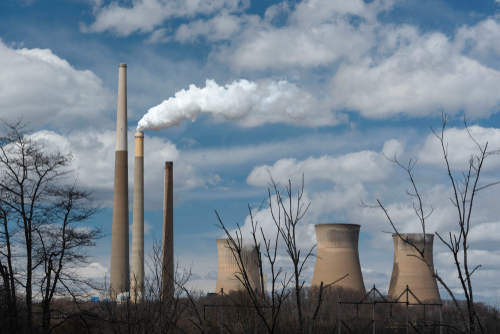
With the most recent data for this summer’s 56th Regional Greenhouse Gas Initiative (RGGI) quarterly auction showing a record-high clearing price, one Pennsylvania group took the opportunity to slam Gov. Tom Wolf’s plan to have the state join the cap-and-trade market-based program.
“PA electricity ratepayers applaud yet another month without having to suffer the burden of 30-40% electricity rate hikes from the $800m/yr #RGGI ELECTRICITY TAX,” tweeted the Power PA Jobs Alliance on Thursday night. “@GovernorTomWolf should be ashamed of this anti-poor, anti-worker ‘legacy.’”
RGGI is a cooperative agreement among 11 East Coast states to reduce CO2 emissions from power plants and is the first program in the country to place a cap on power sector CO2 emissions.
In RGGI states, regulated power plants are required to purchase one RGGI CO2 allowance for every short ton of CO2 they emit. Emissions allowance prices are influenced by several factors, such as the predefined limit on allowable emissions, the number of participants in the market, and energy prices, according to the U.S. Energy Information Administration (EIA).
The 56th RGGI quarterly auction held June 1, resulted in “a record-high clearing price” of $13.90 per ton for CO2 emissions allowances, surpassing the previous quarter’s clearing price of $13.50 per ton by 3 percent and the June 2021 clearing price of $7.97 per ton by 74 percent, the EIA reported yesterday.
“Allowance prices set in the RGGI auctions have been increasing since the June 2017 auction, which cleared at $2.53 per ton,” said the EIA, noting that the 57th quarterly RGGI auction was held on Sept. 8. Data from that auction will be available in a few months.
The original RGGI member states are Connecticut, Delaware, Maine, Maryland, Massachusetts, New Hampshire, New Jersey, New York, Rhode Island, and Vermont. Starting in January 2021, Virginia became a full participant in the RGGI CO2 emission allowance market.
Pennsylvania, one of the nation’s biggest coal-producing states, was set to join the RGGI as its 12th member; however, in July, the Pennsylvania Commonwealth Court entered a preliminary injunction that temporarily prevents the state from implementing its CO2 Budget Trading Program.
Along with the Power PA Jobs Alliance, opposition to Pennsylvania’s participation in the RGGI also exists from labor, coal and natural gas advocates, such as the Pennsylvania Independent Oil and Gas Association, the Pennsylvania Manufacturers’ Association, and the conservative Citizens Alliance of Pennsylvania.
The Power PA Jobs Alliance in March said that the Wolf administration conducted modeling to estimate the consumer impact of the RGGI electricity tax when the RGGI carbon tax rate was $5.20. Since that original modeling, the RGGI carbon tax rate increased to $13.50, or by 160 percent.
“As a result, the Wolf modeling underestimates the RGGI tax impact on Pennsylvania electric consumers,” the alliance said, citing data from the Pennsylvania Independent Fiscal Office that found RGGI will cost Pennsylvania customers $800 million annually, or $6.4 billion over eight years.
On the other side, supporters of the plan include not only the governor and numerous state Democratic legislators, but organizations including the Sierra Club, Clean Jobs Pennsylvania, the Environmental Defense Fund, and Conservatives for Responsible Stewardship, along with the investor group Ceres and companies like oil giant BP plc.
The Pennsylvania Department of Environmental Protection says the state’s participation in the RGGI would help the state combat climate change, reach its GHG emissions goals, reduce air pollution, and improve citizens’ health, among other benefits.
As the country’s No. 3 electricity producer and coal producer, Pennsylvania emits the fourth-most carbon dioxide, according to the EIA.